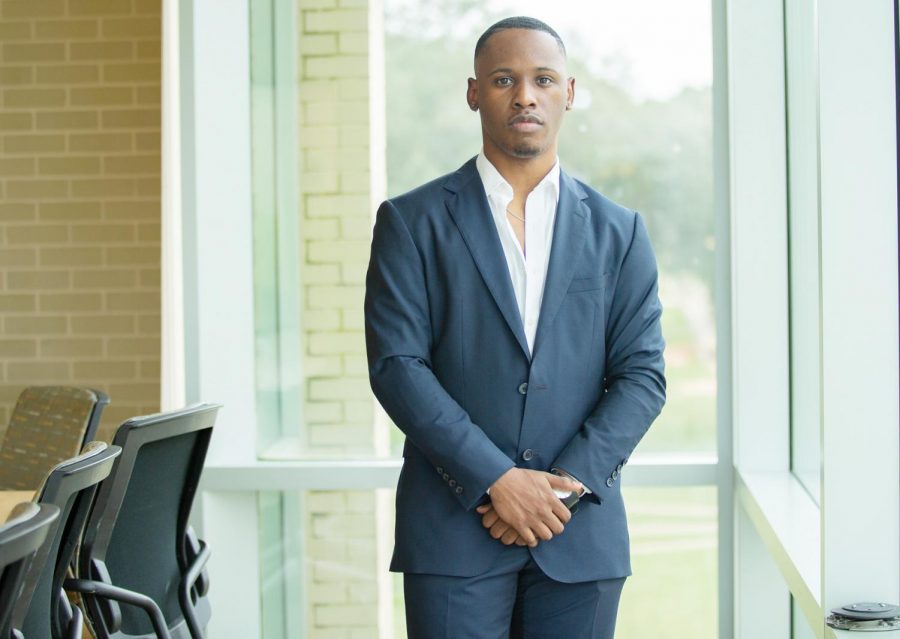Attorney General Rhone evaluates SGA Executive Branch
November 11, 2020
“This year is new for us. I think we’ve been focused on building the house without the foundation,” said Student Body President David Hammond Jr., reflecting on the Student Government Association Attorney General Trentqual Rhone’s first advisory opinion. As the chief officer of SGA, Hammond believes that Rhone’s opinion “opened our eyes to realize that our foundation must be strong in order for the house to stand.”
“Our foundation is making sure we adhere to the constitution, while the house is what we do during our tenure,” he continued. “I think we focused on the basic constitutional duties without looking back, making sure we checked the others off.”
As stated in the SGA Constitution, Article III, Section 16, Sub-Section D, it is the duty of the attorney general to “review the performance of each officer, appointed or elected, to ensure conformity with constitutional duties.”
Serving as the attorney general’s official review of the SGA’s actions, choices, and activities thus far, the letter evaluates each branch and executive officer in the following areas: productivity of the branch/respective officers, how well the branch/respective officers have engaged with the student body and the branch/officer’s familiarity, completion, and strategies for completion of constitutional duties.
“Being that we are amid a global pandemic, there seems to be a disconnect between student government and the student body, especially the incoming freshmen who may not be aware of the SGA’s main purpose, which is governance,” said Rhone, further explaining the reasoning behind the letter. “Furthermore, this letter also serves as a notice before disciplinary action against any officer(s) who have not fulfilled their duties.”
Despite titling the correspondence as an “Advisory Opinion Letter,” Rhone stated that the wording was improper as it is “more of an evaluation of all SGA officers’ performance.” As a result of COVID-19, campus interactions have drastically changed. Understanding this, Rhone noted that the purpose of the correspondence was to “highlight the good, bad, and everything in-between as it relates to SGA so that students are aware of what’s been going on.”
“The recommendations were merely constitutional duties or otherwise necessary actions that each branch or respective officer had not taken up until that point,” Rhone said, explaining how he came to his recommendations. “Though the correspondence title is ‘opinion letter,’ which was an error, I kept my personal opinions about SGA performance out of the letter. Instead, I wanted to relay information about each branch/officer’s actions/accomplishments to the student body from an objective standpoint.”
From the evaluation, Rhone recommended that the executive branch host a full branch meeting with the minutes published in the SGA newsletter, fill vacancies, specifically the elections committee, and formulate/present the 2020-2021 annual operating budget. Agreeing with his recommendations, Hammond said that there is “no excuse as to why those duties haven’t been fulfilled” and promised that he would work with the rest of the branches to ensure that they are “up to standard and are in compliance with the constitution.”
For the legislative branch, he urged the leadership to “ensure that the branch is following constitutional guidelines and provisions set by previous legislation,” such as writing bills and providing students with access to senate documents. Calling Rhone’s evaluations “fair,” Student Body Vice President Tyler Rice agrees with many of his observations and believes that many of the deficiencies stated resulted from the branch adjusting to the pandemic.
“I plan on addressing the deficiencies stated in the AG’s opinion by giving the senators information on writing bills and constitutional revisions,” Rice said, explaining how he plans to address Rhone’s recommendations. “The senate president pro-tempore has hosted a constitution workshop, and we have a parliamentary procedure workshop on Saturday.”
As Chief Justice Joshua Wilkinson is not physically on campus and graduates in the spring, Rhone recommended that the branch focus on sustainability. This includes filling the vacancies in their branch, training all associate justices, and working closely with Wilkinson to ensure that they have a plan of action once he graduates.







